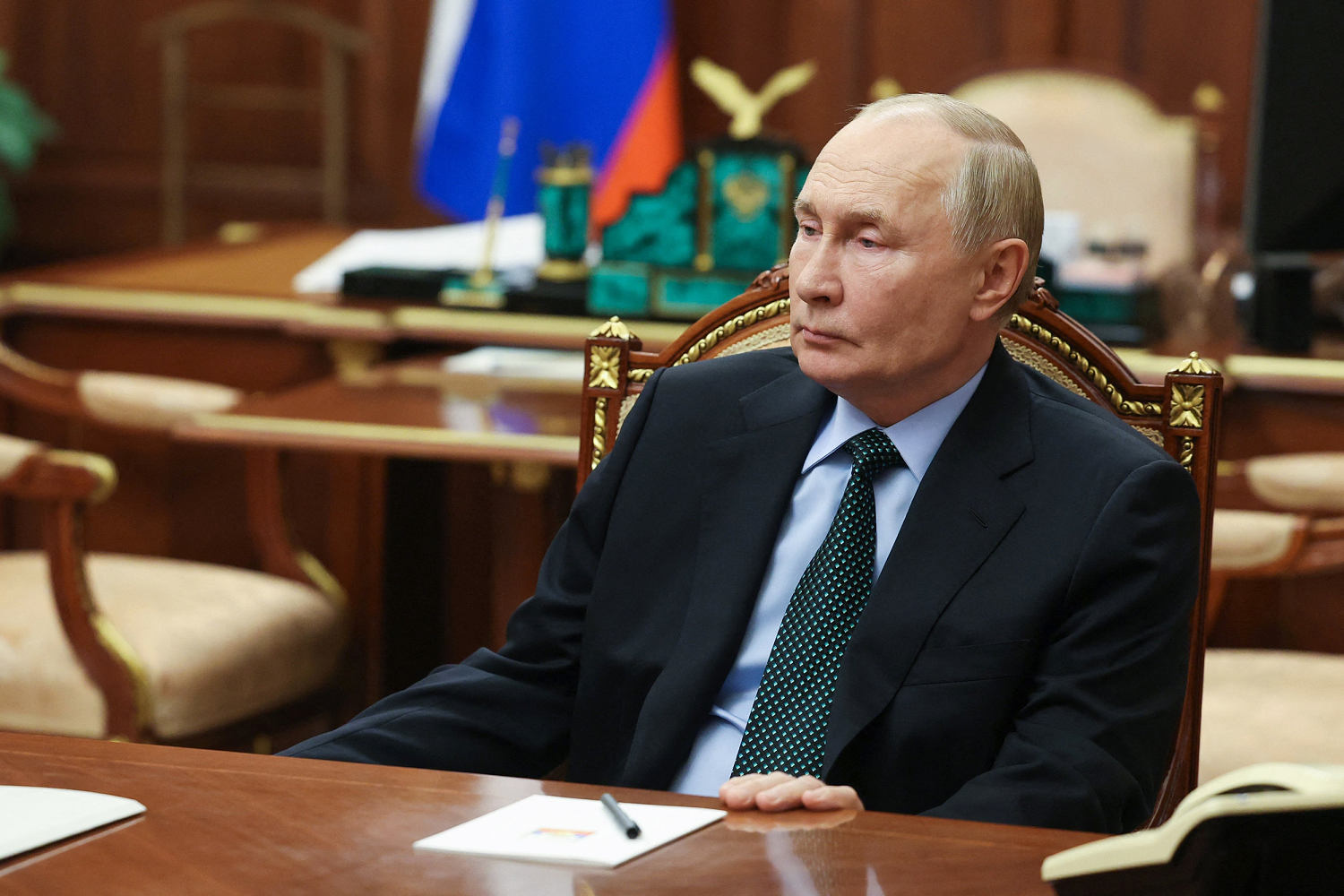Putin issues new nuclear doctrine; Ukraine hits Russia with ATACMS for first time

Russian President Vladimir Putin formally lowered the threshold for his country’s use of nuclear weapons Tuesday, days after the United States allowed Ukraine to strike inside Russia using American missiles.
The Kremlin announced that Putin had approved an updated nuclear doctrine — a document that governs how Russia uses its nuclear arsenal — including the declaration that Moscow could unleash a nuclear strike if subject to an attack by a non-nuclear country that has the support of a nuclear state.
Moscow’s defense ministry claimed later Tuesday that Ukraine had carried out its first strike on Russian territory using the U.S.-supplied long-range weapons known as ATACMS, hitting a military facility in the Bryansk region.
Russian air defenses shot down five ATACMS missiles but fragments of another “landed on technical territory of a military facility in the Bryansk region, a fire broke out, there were no casualties or damage,” the defense ministry said, according to the state-run RIA news agency.
Ukraine’s military said earlier that it had hit a military arsenal near the city of Karachev in Bryansk. It did not specify what weapons were used in the attack.
The changes to Russia’s nuclear doctrine mark the most significant saber rattling yet by the Kremlin, which has consistently warned about possible nuclear war throughout the now 1,000 days since its full-scale invasion of Ukraine.
“The nuclear doctrine update was required to bring the document in line with the current political situation,” Kremlin spokesperson Dmitry Peskov told the TASS state news agency in comments published early Tuesday.
Peskov outlined Moscow’s new threat in light of Washington’s shift in policy: That the use of Western non-nuclear missiles by Ukraine’s military against Russia under the new doctrine could lead to a nuclear response.
Still, the use of nuclear weapons would be a “last resort measure,” he added.
Putin had signaled the update to his country’s policy earlier this year as he sought to warn the West against loosening restrictions on Kyiv’s use of long-range weapons to strike deep inside Russia.
Russia also reserved the rise to use the weapons even if Belarus was attacked, he said then. And the new doctrine matches that shift.
“Aggression against the Russian Federation and its allies by a non-nuclear country with the support of a nuclear state will be considered a joint attack,” it reads.
The doctrine also says that “The Russian Federation may use nuclear weapons in the event of a critical threat to the sovereignty and territorial integrity of itself and Belarus,” a shift from previous language that said it may use nuclear weapons “when the very existence of the state is at risk.”
The changes “create more leeway for a Russian nuclear response to Ukrainian — or, as the Kremlin frames it, Western — strikes on Russian territory<” said
The changes follow Putin’s warning to the U.S. and its NATO allies that any use of their long-range weapons supplied to the Ukrainians against Russian territory would mean NATO and Russia are at war.
But after the U.S. and others said that thousands of North Korean troops had joined the fight alongside the Kremlin’s military, U.S. officials told NBC News that the Biden administration had relaxed restrictions on the weapons it has supplied to its ally, authorizing use of the long-range ATACMS missile systems for limited strikes inside Russia.
The shift drew condemnation from the Kremlin, with Peskov saying Monday that Washington was pouring “oil on the fire” and was provoking “further escalation of tension around this conflict.”
Dmitry Medvedev, deputy chair of Russia’s security council and former president, offered a clearer warning to NATO and Ukraine on Tuesday. If NATO missiles were fired at Russia, Moscow could target Kyiv and the bloc’s facilities with its nuclear weapons, he said.
“That means World War III,” Medvedev said in a post on X.




